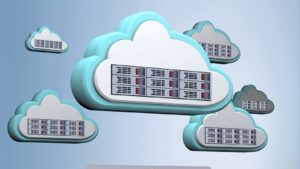
In the rapidly evolving world of technology, small businesses face unique challenges when managing their IT infrastructure. Server solutions are central to maintaining efficient operations, ensuring data security, and supporting growth. Choosing the right server solution for small businesses can be a game-changer, balancing cost, performance, and scalability. Here’s a comprehensive guide to understanding the best server solutions for small businesses.
Server Solutions for Small Businesses
On-Premises Servers
On-premises servers are physical servers installed and maintained at a business’s location. They provide direct control over hardware and software, making them a popular choice for businesses needing high customization and security.
Pros:
- Control: Full hardware and software management allows customization to specific needs.
- Security: Physical control over data and the server itself can enhance security, especially for sensitive information.
- Reliability: No reliance on external internet connections for internal operations.
Cons:
- Cost: High initial investment in hardware and ongoing maintenance costs.
- Management: Requires in-house IT expertise for setup, maintenance, and troubleshooting.
- Scalability: Expanding capacity involves purchasing additional hardware and can be costly.
Cloud-Based Servers
 Cloud-based servers are hosted by third-party providers and accessed via the Internet. They offer flexibility, scalability, and reduced need for physical infrastructure, making them an attractive option for small businesses.
Cloud-based servers are hosted by third-party providers and accessed via the Internet. They offer flexibility, scalability, and reduced need for physical infrastructure, making them an attractive option for small businesses.
Pros:
- Scalability: Easily adjust resources based on demand, accommodating growth without significant upfront costs.
- Cost-Efficiency: Typically involves lower initial costs and reduces the need for in-house IT management.
- Accessibility: Access data and applications from anywhere with an internet connection, supporting remote work and multi-location operations.
Cons:
- Ongoing Costs: Subscription-based pricing can add up over time.
- Dependency: Requires a reliable internet connection for access and performance.
- Data Security: This relies on the cloud provider’s security measures, which may concern businesses handling sensitive data.
Hybrid Servers
 Hybrid servers combine on-premises and cloud-based solutions, offering a versatile approach to server management. This model allows small businesses to retain critical data on-premises while leveraging the cloud for additional storage and scalability.
Hybrid servers combine on-premises and cloud-based solutions, offering a versatile approach to server management. This model allows small businesses to retain critical data on-premises while leveraging the cloud for additional storage and scalability.
Pros:
- Flexibility: Allows businesses to optimize resources based on their specific needs, such as storing sensitive data locally while using cloud storage for backups or less critical data.
- Disaster Recovery: Enhances data protection with cloud-based backups and redundancy.
- Cost Management: Balances initial investments with ongoing operational costs.
Cons:
- Complexity: Managing and integrating both on-premises and cloud solutions can be complex and may require specialized IT knowledge.
- Cost: Involves expenses for both on-premises hardware and cloud services.
Key Considerations for Small Businesses
Budget
Small businesses must carefully consider their budget when selecting a server solution. On-premises servers require a significant initial investment, while cloud-based solutions typically involve ongoing subscription fees. Assess the total cost of ownership, including hardware, software, and maintenance, to make an informed decision.
Scalability
 Consider your business’s growth potential. Cloud-based servers excel in scalability, allowing you to adjust resources as needed without significant additional investment. On-premises servers require planning and additional investments for expansion.
Consider your business’s growth potential. Cloud-based servers excel in scalability, allowing you to adjust resources as needed without significant additional investment. On-premises servers require planning and additional investments for expansion.
Security
Data security is crucial for any business. On-premises servers offer direct control over security measures but require diligent management. Cloud providers typically offer robust security features but ensure they meet your business’s specific requirements and compliance standards.
Support and Maintenance
Evaluate the level of support and maintenance required for each server solution. On-premises servers necessitate in-house IT expertise for setup and ongoing management. Cloud-based solutions often include support services, which can reduce the burden on internal resources.
Ease of Use
Consider the ease of use and integration with your existing systems. Cloud-based solutions generally offer user-friendly interfaces and easier integration with other cloud-based applications. On-premises servers may require more technical knowledge and training.
Selecting the right server solution is a critical decision for small businesses, impacting cost, performance, and future growth. On-premises servers offer control and customization but incur higher upfront costs and maintenance needs. Cloud-based servers provide flexibility and scalability at a lower initial cost but rely on internet connectivity. Hybrid solutions offer a balanced approach, combining the benefits of both models.
